
image: Jennie C. Jones

II. “THE MFA THING IS AN
INVENTION OF THE ’70S.
ITS RAISON D’ÊTRE IS EVAPORATING.”SH: So what makes you happy and what makes you sad in culture right now?
DH: You know, I’m deeply engaged in culture, but I’m well out of the trenches, which means if I talk, I talk Frank Gehry. I don’t talk younger architects. I talk Ellsworth Kelly. And I’m happy for that, because when you’re a younger critic you can almost never get the chance to write about people who are older than you are—people who really influenced you—and that’s kind of fun. But there are no public venues to write about art anymore, except for three or four permanent jobs that my friends do and I never could. Mostly I write for commercial galleries these days. There are no serious art magazines.
SH: So there’s no place to talk about art?
DH: No, and my particular age of the critic is just over. There are no influential midcareer critics today. I think part of that is circumstance, in the sense that a whole generation of critics died of AIDS in the ’80s. It was like the plague that wiped out two generations of Neapolitan painters in the sixteenth century. They’re just gone, and those dead guys from the ’80s should be writing most of what I’m writing now, and I should be left to play blackjack.
SH: OK, so what are the supposed art magazines interested in hearing about, if not about art?
DH: They want touting. In twenty years we’ve gone from a totally academicized art world to a totally commercialized art world, and in neither case is criticism a function. We’re all supposed to be positive about art. Nobody plays defense! I mean, my job, to a certain extent, is to be in the net. My job is to mow stuff down.
SH: So in what kind of structure would there be a place for criticism?
DH: Well, I came into an art world of volunteers—six thousand heavily medicated, mysteriously employed human beings who were there because they wanted to be, you know? And all they wanted was to be right—not safe, not rich, not fair, but right! Now we have this vast bureaucratic structure of support. Everybody’s a poll watcher. Nobody’s a voter. We’ve got millions of people devoted to the whole idea that art’s supposed to be fair and good for you. But art’s not too fair, you know? Why should you be publishing books and not your friends? Because it’s not fair, that’s why.
SH: Yeah, whatever.
DH: Anyway, the art world is way too big right now. The art world I came up into was very much like the jazz world I grew up in, which is to say, a relatively small thing. If you got to go see Miles Davis in a little bar on La Brea, that was great, and you didn’t sit around saying, “There was no coverage in the New York Times! Miles is not going to get any reviews!” You know what I’m saying?
SH: Sure, it was for yourself. You were happy.
DH: Right, you were happy to be there, and if the art world today shrunk down to the size and scale of the jazz world, I would be happier now. Things would be freer and a lot less tedious.
SH: I suppose the schools have something to do with the change—the craziness that you have to get an MFA to be an artist.
DH: Thirty-five thousand MFAs a semester, 90 percent of whom never make another work of art.
SH: And do you think that that kind of system produces—
DH: Almost no one. Idiots with low-grade depression. When I opened my gallery in the late ’60s, Peter Plagens—who’s now the critic for Newsweek and still shows his paintings—was the only artist I represented who had been to graduate school. The MFA thing is an invention of the ’70s. Its raison d’être is evaporating.
SH: Which is?
DH: Training sissies for teaching jobs. Well, the official raison d’être was to create an intellectual and pedagogical justification for the most frivolous activity in Western culture, so you go back and read things from the past. It’s the traditional Renaissance desire that artists should be taken seriously, and that art not be a practical but a liberal art. But I tend to think it’s a practice, like law or like medicine.
Read the full interview here at The Believer. many many gems as always!
BreakTheChain.org has some great insight to the misinformation campaigns of junk mail as well.The smear forward has its roots in two distinct forms of Internet-age communication. First, there's the electronically disseminated urban legend ("Help find this missing child!"; "Bill Gates is going to pay people for every e-mail they send!"), which has been a staple of the Internet since the mid- '90s. Then there's the surreal genre of right-wing e-mail forwards. These range from creepy rage-filled quasi-fascist invocations ("The next time you see an adult talking...during the playing of the National Anthem--kick their ass") to treacly aphorisms of patriotic/religious uplift ("remember only two defining forces have ever offered to die for you, Jesus Christ...and the American Soldier").
....From the beginning, the vast majority of these Internet-disseminated rumors have come from the right. (Snopes lists about fifty e-mails about George W. Bush, split evenly between adulatory accounts of him saluting wounded soldiers or witnessing to a wayward teenager, and accounts of real and invented malapropisms. In contrast, every single one of the twenty-two e-mails about John Kerry is negative.) For conservatives, these e-mails neatly reinforce preconceptions, bending the facts of the world in line with their ideological framework: liberals, immigrants, hippies and celebrities are always the enemy; soldiers and conservatives, the besieged heroes. The stories of the former's perfidy and the latter's heroism are, of course, never told by the liberal media. So it's left to the conservative underground to get the truth out. And since the general story and the roles stay the same, often the actual characters are interchangeable.
"A lot of the chain letters that were accusing Al Gore of things in 2000 were recycled in 2004 and changed to Kerry," says John Ratliff, who runs a site called BreakTheChain.org, which, like Snopes, devotes itself to debunking chain e-mails. One e-mail falsely described a Senate committee hearing in the 1980s where Oliver North offered an impassioned Cassandra-like warning about the threat of Osama bin Laden, only to be dismissed by a condescending Democratic senator. Originally it was Al Gore who played the role of the senator, but by 2004 it had changed to John Kerry. "You just plug in your political front-runner du jour," Ratliff says.
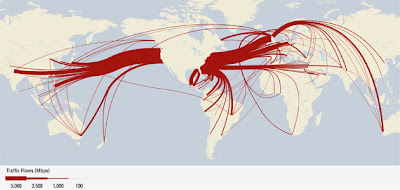
Much of the globe's international telephone traffic flows through the United States, as shown by this rendering of 2005 international phone-call traffic from telecommunications resarch firm, Telegeography.Wired currently has this article "The NSA's Lucky Break: How the U. S. Became the Switchboard to the World,". It shines a light on how tariffs and communication precedents in the last century positioned the U.S. to be the world hub for communication. The NSA will be able to tap all of it.
Illustration: Copyrighted Map Courtesy of Telegeography
" Leading House Democrats introduced the so-called RESTORE Act (.pdf) Tuesday that allows the nation's spies to maintain permanent eavesdropping stations inside United States switching centers."What's perhaps most fascinating - beyond the dark side of this universal surveillance- is the notion that you simply need to tap about 3 locations in the US to have a direct line to almost all of the world's telecommunications.
Your predecessors on the Senate Banking Committee, in the celebrated Pecora Hearings of 1933 and 1934, laid the groundwork for the modern edifice of financial regulation. I suspect that they would be appalled at the parallels between the systemic risks of the 1920s and many of the modern practices that have been permitted to seep back in to our financial markets.
Although the particulars are different, my reading of financial history suggests that the abuses and risks are all too similar and enduring. When you strip them down to their essence, they are variations on a few hardy perennials - excessive leveraging, misrepresentation, insider conflicts of interest, non-transparency, and the triumph of engineered euphoria over evidence.
The most basic and alarming parallel is the creation of asset bubbles, in which the purveyors of securities use very high leverage; the securities are sold to the public or to specialized funds with underlying collateral of uncertain value; and financial middlemen extract exorbitant returns at the expense of the real economy. This was the essence of the abuse of public utilities stock pyramids in the 1920s, where multi-layered holding companies allowed securities to be watered down, to the point where the real collateral was worth just a few cents on the dollar, and returns were diverted from operating companies and ratepayers. This only became exposed when the bubble burst. As Warren Buffett famously put it, you never know who is swimming naked until the tide goes out.
There is good evidence - and I will add to the record a paper on this subject by the Federal Reserve staff economists Dean Maki and Michael Palumbo - that even much of the boom of the late 1990s was built substantially on asset bubbles. ["Disentangling the Wealth Effect: a Cohort Analysis of Household Savings in the 1990s"]
A second parallel is what today we would call securitization of credit. Some people think this is a recent innovation, but in fact it was the core technique that made possible the dangerous practices of the 1920. Banks would originate and repackage highly speculative loans, market them as securities through their retail networks, using the prestigious brand name of the bank - e.g. Morgan or Chase - as a proxy for the soundness of the security. It was this practice, and the ensuing collapse when so much of the paper went bad, that led Congress to enact the Glass-Steagall Act, requiring bankers to decide either to be commercial banks - part of the monetary system, closely supervised and subject to reserve requirements, given deposit insurance, and access to the Fed's discount window; or investment banks that were not government guaranteed, but that were soon subjected to an extensive disclosure regime under the SEC.
- excerpt from Robert Kuttner's testimony before the House Financial Services Committee on Oct. 2.
Read further here.
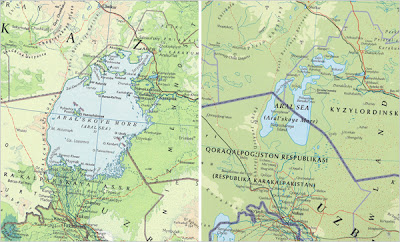 The Times has this article on the new nature of mapping in a world of hyper change. Mapmakers have long been come accustomed to the ever shifting borders of post-colonial and post- Soviet states along with the lessoning addition to the new "discoveries". Lately there is a new challenge, keeping maps current with the changes wrought through environmental degeneration. Above is a picture of the Aral Sea from 1967 on the left and the current view on the right. It's an alarming change that parallels the radical changes in the arctic. At least in the case of the Aral Sea, steps are being taken to make up for bad engineering policies of the past, most sites like this are not that lucky. I can only wonder at what a map of West Virginia might look like in a few years after recent coal legislation is implemented accelerating the practice of "mountain topping".
The Times has this article on the new nature of mapping in a world of hyper change. Mapmakers have long been come accustomed to the ever shifting borders of post-colonial and post- Soviet states along with the lessoning addition to the new "discoveries". Lately there is a new challenge, keeping maps current with the changes wrought through environmental degeneration. Above is a picture of the Aral Sea from 1967 on the left and the current view on the right. It's an alarming change that parallels the radical changes in the arctic. At least in the case of the Aral Sea, steps are being taken to make up for bad engineering policies of the past, most sites like this are not that lucky. I can only wonder at what a map of West Virginia might look like in a few years after recent coal legislation is implemented accelerating the practice of "mountain topping". The day after a heavily scripted act of political theater by the Petraeus "report" we are left with today's loss and the knowledge that the only thing that has truly changed is ourselves. I think by now many of us realize that the greatest threat is not foreign jihadists but a cynical home grown political entity that is attempting to hold power through creating it's own reality while debasing the reality of those who serve, die and dissent.
The day after a heavily scripted act of political theater by the Petraeus "report" we are left with today's loss and the knowledge that the only thing that has truly changed is ourselves. I think by now many of us realize that the greatest threat is not foreign jihadists but a cynical home grown political entity that is attempting to hold power through creating it's own reality while debasing the reality of those who serve, die and dissent.
 Another summer in the city is coming to a close so I'm taking a trip to Packer country (art nerds, that's an NFL team) for the coming holiday weekend. Exotic for sure, some might even say an unconventional holiday destination.
Another summer in the city is coming to a close so I'm taking a trip to Packer country (art nerds, that's an NFL team) for the coming holiday weekend. Exotic for sure, some might even say an unconventional holiday destination.The twilight of the idols has been postponed. For more than two centuries, from the American and French Revolutions to the collapse of Soviet Communism, world politics revolved around eminently political problems. War and revolution, class and social justice, race and national identity — these were the questions that divided us. Today, we have progressed to the point where our problems again resemble those of the 16th century, as we find ourselves entangled in conflicts over competing revelations, dogmatic purity and divine duty. We in the West are disturbed and confused. Though we have our own fundamentalists, we find it incomprehensible that theological ideas still stir up messianic passions, leaving societies in ruin. We had assumed this was no longer possible, that human beings had learned to separate religious questions from political ones, that fanaticism was dead. We were wrong. - Mark Lilla (NY Times mag)The above quote from the this article - The Politics of God.
There’s that terrific passage in Capital– “The Fetishism of the Commodity and Its Secret” –where Marx remarks that Protestant Christianity is the perfect religion for capitalism:For a society of commodity producers, whose general social relation of production consists in the fact that they treat their products as commodities, hence as values, and in this material form bring their individual, private labours into relation with each other as homogenous human labour, Christianity with its religious cult of man in the abstract, more particularly in its bourgeois development, i.e. in Protestantism, Deism, etc., is the most fitting form of religion. In the ancient Asiatic, Classical-antique, and other such modes of production, the transformation of the product into a commodity, and therefore men’s existence as producers of commodities, plays a subordinate role, which however increases in importance as these communities approach nearer and nearer to the stage of their dissolution. Trading nations, properly so called, exist only in the interstices of the ancient world, like the gods of Epicurus in the intermundia, or Jews in the pores of Polish society. Those ancient social organisms of production are much more simple and transparent than those of bourgeois society. But they are founded either on the immaturity of man as an individual, when he has not yet torn himself loose from the ummbilical cord of his natural species-connection with other men, or on direct relations of dominance and servitude. They are conditioned by a low stage of development of the productive powers of labour and correspondingly limited relations between men within the process of creating and reproducing their material life, hence also limited relations between men and nature. These real limitations are reflected in the ancient worship of nature, and in other elements of tribal religions. The religious reflections of the real world can, in any case, vanish only when the practical relations of everyday life between man and man, and man and nature, generally present themselves to him in a transparent and rational form. The veil is not removed from the countenance of the social life-process, i.e. the process of material production, until it becomes production by freely associated men, and stands under their conscious and planned control. This, however, requires that society posses a material foundation, or a series of material conditions of existence, which in their turn are the natural and spontaneous product of a long and tormented historical development. (Fowkes trans, 172-173)
The operative words here are “cult of man in the abstract”, where the subject is conceived as separate and independent of his social and historical relations, i.e., bourgeois individualism reflected in the “personal relationship with God” and the ahistoricism of these religious movements. Yet how are Badiou and Zizek not simply giving us simply a secular form of this structure or phenomenon, and thereby reproducing, at a certain level of social relations, the very thing they claim to be targeting

How did Stevens and Williams find the strategies they needed to feed and sustain their craft in the midst of their demanding professional lives?Stevens and Williams did change the course of American poetry and the circumstances from which they did it is incredible - from the very bowels of employment - the daily grind, the ordinary life. They do really bust the myth of self-destructive creativity. I'm amazed by the strength of their accomplishments. In other words they were like the vast majority of artists. Regular working people with an open eye for something other.
 Maud Newton has been running a great series on independent booksellers near and far. Be sure and check out these local refuges!
Maud Newton has been running a great series on independent booksellers near and far. Be sure and check out these local refuges!
Reading accounts of the treatment of Padilla and the psychiatrist’s description of what remains today of the battered spirit of Jose Padilla, it is clear that the Bush Administration has fully availed itself of these concepts. The Jacoby Declaration makes clear that “breaking” the subject is in fact the object of the process. The psychiatrists’ report shows that Padilla was essentially brainwashed. He could not really even mount a defense to the charges against him because he loved George W. Bush and he found it physically impossible to oppose him.
And the charges brought against Padilla are “thought crimes.” He is accused of thinking bad thoughts about America and the Bush Administration. - Scott Horton - Harper's
So the part that almost makes me cry is that this man, who has been treated so abominably, still believes in the integrity of the Office of the President. And that the person sitting in the White House MUST be a person of fairness and justice, and that somehow he must not know what is happening to Mr. Padilla because surely if he did, it would not continue to happen. - Lokywoky - Jesus' General
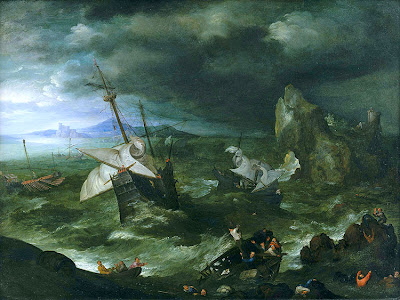
This essay argues that the Foreign Intelligence Surveillance Act should be restructured to account for changes in communications technology and Fourth Amendment law since FISA's enactment in 1978. FISA reflects the person-focused assumptions of 1970s-era technology and constitutional law. At that time, foreign intelligence monitoring necessarily focused on subject identity and location. Although some modern investigations track this traditional approach, many do not; investigations involving packet-switched networks often start with data divorced from any known person or location. FISA should be amended to create two distinct authorities for surveillance: data-focused authorities when the identity and/or location of the subject are unknown, and person-focused authorities when the identity and/or location are known. A two-pronged approach can best implement the goals of foreign intelligence investigations given the realities of modern communications networks.
Imagine that the government has reason to believe that an Al-Qaeda cell uses a particular Internet service provider in Kabul and a particular type of software to communicate about a terrorist plot targeting the United States. In this case, the government has probable cause to believe that monitoring the ISP would uncover terrorist intelligence information. But how broad can the monitoring be? Can the government look at all of the traffic coming to or from that ISP in Kabul? Or can it only look at traffic to or from that ISP that uses that particular software? Or only some specific portion of the traffic from that ISP using that software.-Orin S. Kerr
- NY TimesCongressional aides and others familiar with the details of the law said that its impact went far beyond the small fixes that administration officials had said were needed to gather information about foreign terrorists. They said seemingly subtle changes in legislative language would sharply alter the legal limits on the government's ability to monitor millions of phone calls and e-mail messages going in and out of the United States.
....For example, if a person in Indianapolis calls someone in London, the National Security Agency can eavesdrop on that conversation without a warrant, as long as the N.S.A.'s target is the person in London.
Tony Fratto, a White House spokesman, said Sunday in an interview that the new law went beyond fixing the foreign-to-foreign problem, potentially allowing the government to listen to Americans calling overseas.
But he stressed that the objective of the new law is to give the government greater flexibility in focusing on foreign suspects overseas, not to go after Americans.
"It's foreign, that's the point," Mr. Fratto said. "What you want to make sure is that you are getting the foreign target."
....The new law gives the attorney general and the director of national intelligence the power to approve the international surveillance, rather than the special intelligence court. The court's only role will be to review and approve the procedures used by the government in the surveillance after it has been conducted. It will not scrutinize the cases of the individuals being monitored.
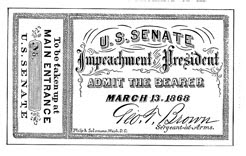
The above came from a recent episode of Bill Moyers Journal on the nature of impeachment. I recommend watching the episode or reading the entire transcript."The founding fathers expected an executive who tried to overreach and expected the executive would be hampered and curtailed by the legislative branch... They [Congress] have basically renounced — walked away from their responsibility to oversee and check." — Bruce Fein
"On January 20th, 2009, if George Bush and Dick Cheney are not appropriately held to account this Administration will hand off a toolbox with more powers than any President has ever had, more powers than the founders could have imagined. And that box may be handed to Hillary Clinton or it may be handed to Mitt Romney or Barack Obama or someone else. But whoever gets it, one of the things we know about power is that people don't give away the tools." — John Nichols

According to Secretary Chertoff, we're entering a new period of lurking terrorist danger this summer. In other words, a period of danger similar to every other summer since 2001 and like most periods of low popularity for the president and before elections as well. But perhaps it is a period of increased danger. It really well might be. We've known for some time a mix of sagging tide of the war in Afghanistan and the mounting impotence of the Musharraf regime in Pakistan has allowed jihadist groups a relative safe-haven in the lawless Pakistani borderlands like they have not had since prior to 9/11. And if they can train they can act.People ask what we're doing in Iraq. And you can answer in a hundred ways and in a thousand shades of literalism to metaphor. But at some level we're in Iraq because President Bush wanted a parade. It's not hard to imagine how he must have imagined it. A withdrawal of most American troops from a staunchly allied pro-American Iraq. Waving flags. Heartfelt thanks and vindication for the president who had the guts and character to see it through.
And that's why we stay. Because somehow if he just keeps at it someday he might get his parade. Or rather if he just keeps us there forever he doesn't have to really deal wtih what a disaster he's created and fundamentally what a failure he is.
image: a real hero's welcome - Apollo11 crew


Neo Rauch interview on ArtInfo. Here's a review by Schjeldahl on the show at the MET.You've called your earliest paintings (from 1993) in the Wolfsburg show your first "valid" pictures. How do you judge a painting's "validity?"
Let's go back to that image of the internal compass that I just spoke of: Before 1993 the magnetic needle was swinging all over the place. Discovering my position was complicated, because there were so many artistic points of reference. I was overwhelmed by all of the possibilities coming into my studio from thousands of different directions. My work displayed violent mood swings from abstraction to figuration, and this was just one of the many internal conflicts I faced at the time....
"Validity" comes down to the extent to which the uniqueness of the artist's psyche can establish a permanence of form and meaning in the actual work. Since 1993, I have been able to focus better on sorting out what is most significant for me.
 Criterion Collection is releasing La Jetee and Sans Soleil today. I believe this is the first packaging of La Jetee with another Marker film. Previous versions were with Alphaville or in my case a cruddy a VHS tape. If you are unfamiliar with Marker this is a great place to start.
Criterion Collection is releasing La Jetee and Sans Soleil today. I believe this is the first packaging of La Jetee with another Marker film. Previous versions were with Alphaville or in my case a cruddy a VHS tape. If you are unfamiliar with Marker this is a great place to start. Here is very interesting map that measures and compares the size of national economies. The GDP = consumption + investment + government spending + (exports – imports)
Here is very interesting map that measures and compares the size of national economies. The GDP = consumption + investment + government spending + (exports – imports)UbuWeb: The YouTube of the Avant-Garde UbuWeb has converted all of its rare and out-of-print film & video holdings to on-demand streaming formats à la YouTube, which means that you can view everything right in your browser without platform-specific software or insanely huge downloads. We offer over 300 films & videos from artists such as Marcel Duchamp, Vito Acconci, Pipilotti Rist, Jean Genet, The Cinema of Transgression, Richard Foreman, Terayama Shuji, Paul McCarthy Jack Smith, Carolee Schneeman, John Lennon and hundreds more -- of course all free of charge. Presented in conjunction with our partners at Greylodge.

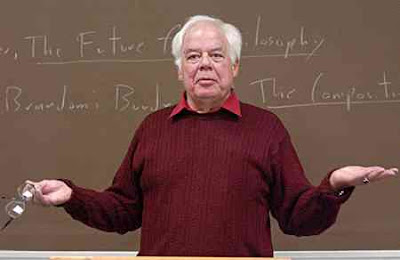 The other thing I missed - Richard Rorty's passing last week. Another controversial iconoclast we've lost this year. From the NY Times:
The other thing I missed - Richard Rorty's passing last week. Another controversial iconoclast we've lost this year. From the NY Times:His views were attacked by critics on the left and the right. The failure to recognize science’s particular powers to depict reality, Daniel Dennett wrote, shows “flatfooted ignorance of the proven methods of scientific truth-seeking and their power.”
Simon Blackburn, a philosopher at Cambridge University, has written of Mr. Rorty’s “extraordinary gift for ducking and weaving and laying smoke.”
Mr. Rorty was engaged with and amused by his critics. In a 1992 autobiographical essay, “Trotsky and the Wild Orchids,” he wrote that he was considered to be one of the “smirking intellectuals whose writings are weakening the moral fiber of the young”; “cynical and nihilistic”; “complacent”; and “irresponsible.”
Yet he confounded critics as well, by speaking up for patriotism, an academic canon and the idea that one can make meaningful moral judgments.
 Somehow I missed this opening on my hiatus but Lens Culture cites the following show which just opened at the New Museum - APOCALYPSE: CONTEMPORARY VISIONS (May 30 - July 27, 2007).
Somehow I missed this opening on my hiatus but Lens Culture cites the following show which just opened at the New Museum - APOCALYPSE: CONTEMPORARY VISIONS (May 30 - July 27, 2007).It is not specific, nor is it political. It is meant to be deeply psychological, more fantasy than reality. We have looked for photographs that suggest something. If they are literal, they may not be obvious, as in Stephen Vaughn's image of an iceberg melting quietly on a beach.Funny I know some bloggers who have a few thoughts on this and would have loved to use that image. Perhaps this could be the official picture for the Democrats in '08...

